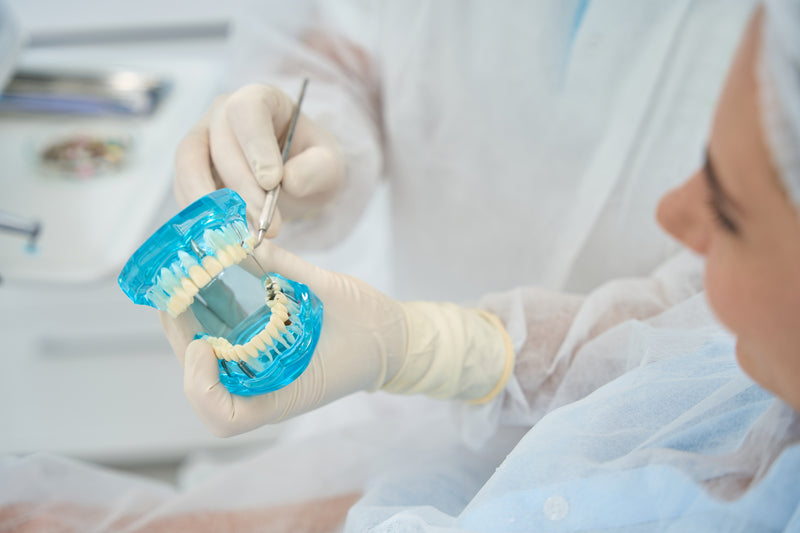Your Guide to Dental Implant Grants in the United States
Dental health is crucial for overall well-being, but the cost of dental procedures, particularly dental implants, can be prohibitively expensive for many. Dental implants offer a permanent solution to tooth loss, improving both functionality and aesthetics.
Related Topics (Sponsored Ads):
However, the high cost can deter individuals from seeking this treatment. Fortunately, there are dental implant grants available in the United States that can help alleviate the financial burden. This guide provides a comprehensive overview of dental implant grants, including how they work, who qualifies, and how to apply.
Understanding Dental Implant Grants
Dental implant grants are financial assistance programs designed to help individuals cover the cost of dental implants. These grants can come from various sources, including non-profit organizations, government programs, and private foundations. They aim to make dental care more accessible to those who might not otherwise be able to afford it.

Types of Dental Implant Grants
Non-Profit Organizations: Many non-profit organizations offer dental implant grants as part of their mission to improve public health. These organizations may focus on specific populations, such as low-income individuals, veterans, or seniors.
Government Programs: Some state and federal government programs provide grants or subsidies for dental care, including dental implants. Medicaid, for instance, offers dental coverage in some states that may include implants under certain conditions.
Private Foundations: Private foundations and charitable trusts may offer grants to individuals in need of dental care. These grants often require an application process and may have specific eligibility criteria.
Who Qualifies for Dental Implant Grants?
Eligibility for dental implant grants varies depending on the grant provider. However, common criteria include:
Income Level: Many grants are aimed at low-income individuals or families who cannot afford dental implants on their own.
Health Condition: Some grants are available to individuals with specific health conditions that necessitate dental implants, such as severe tooth loss or oral cancer.
Age: Certain programs focus on helping seniors, children, or other age-specific groups.
Veterans: There are specific grants and programs available for veterans, recognizing their service and need for comprehensive healthcare, including dental care.
Geographic Location: Some grants are only available to residents of particular states or regions.
How to Find Dental Implant Grants
Research Online: A good starting point is to search online for dental implant grants. Look for non-profit organizations, foundations, and government programs that offer financial assistance for dental care.
Consult with Your Dentist: Dentists and dental clinics often have information about available grants and financial assistance programs. They may also assist with the application process.
Local Health Departments: Contacting your local health department can provide information on state and local programs that offer dental implant grants.
Charitable Organizations: Organizations such as the Dental Lifeline Network and the American Academy of Cosmetic Dentistry (AACD) Charitable Foundation offer programs to help individuals in need of dental care.
How to Apply for Dental Implant Grants
The application process for dental implant grants can vary, but generally includes the following steps:
Gather Documentation: Prepare necessary documentation such as proof of income, medical records, and identification. Some programs may require specific forms or additional information.
Complete the Application: Fill out the application form accurately and completely. Be sure to follow all instructions and provide any required documentation.
Submit the Application: Submit the completed application by the specified deadline. Some programs accept online applications, while others may require mailed submissions.
Follow Up: After submitting your application, follow up with the grant provider to confirm receipt and inquire about the status of your application.
Notable Dental Implant Grant Programs
Dental Lifeline Network: This non-profit organization provides comprehensive dental care to vulnerable populations, including those with disabilities, the elderly, and medically compromised individuals. Their Donated Dental Services (DDS) program offers free dental treatment, including implants.
American Academy of Cosmetic Dentistry (AACD) Charitable Foundation's Give Back a Smile Program: This program helps restore the smiles of survivors of domestic violence who have suffered dental injuries. It covers cosmetic and restorative dental procedures, including implants.
Medicaid: While Medicaid coverage for dental implants varies by state, some states offer dental benefits that include implants for eligible individuals. Check with your state's Medicaid office for specific coverage details.
Smiles for Everyone Foundation: This foundation offers grants through its Smile Makeovers program, providing free dental care to individuals in need.
Tips for a Successful Application
Be Thorough: Ensure that you complete the application form in its entirety and provide all requested documentation. Incomplete applications may be disqualified.
Highlight Your Need: Clearly explain your financial situation and why you need the grant. Be honest and provide as much detail as possible.
Meet Deadlines: Pay attention to application deadlines and submit your application on time. Late submissions are typically not considered.
Seek Assistance: If you're unsure about the application process, seek help from a social worker, healthcare provider, or local health department.
Conclusion
Dental implant grants can significantly reduce the financial burden of dental care, making it possible for more individuals to access the treatment they need. By understanding the types of grants available, eligibility criteria, and the application process, you can increase your chances of securing financial assistance for dental implants. Remember to research thoroughly, prepare your documentation, and submit your application on time. With the right resources and persistence, you can achieve a healthier, more confident smile.




